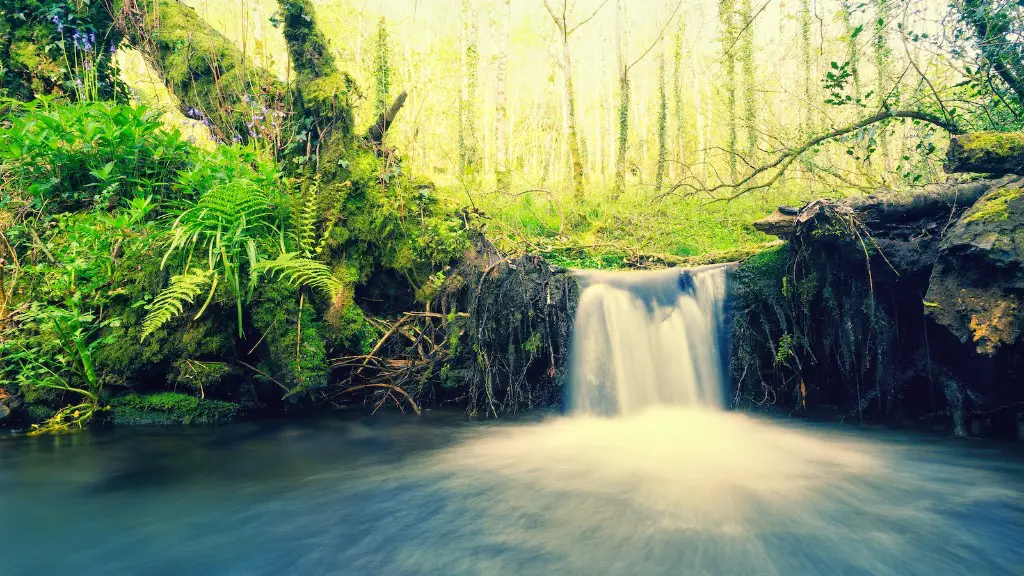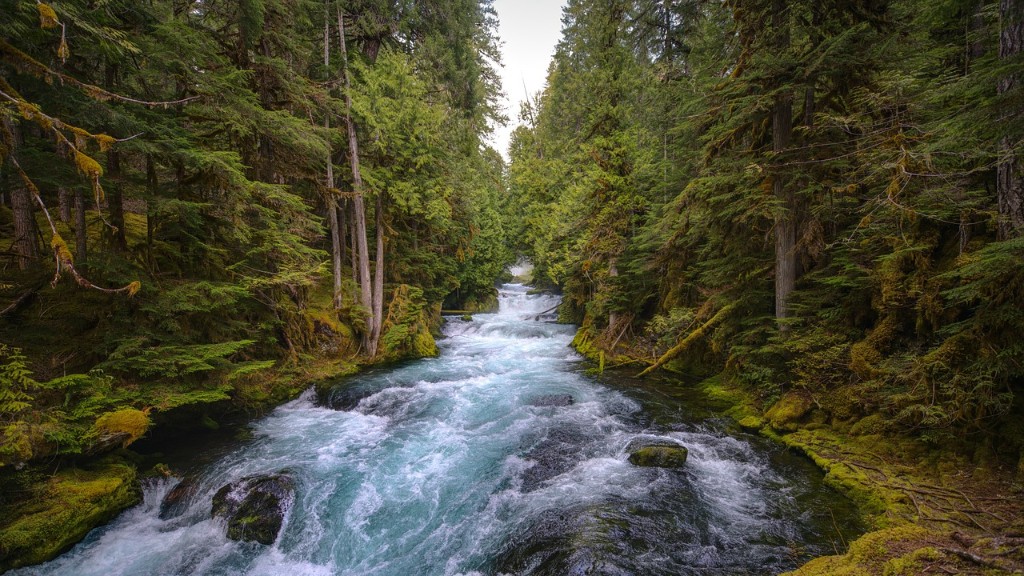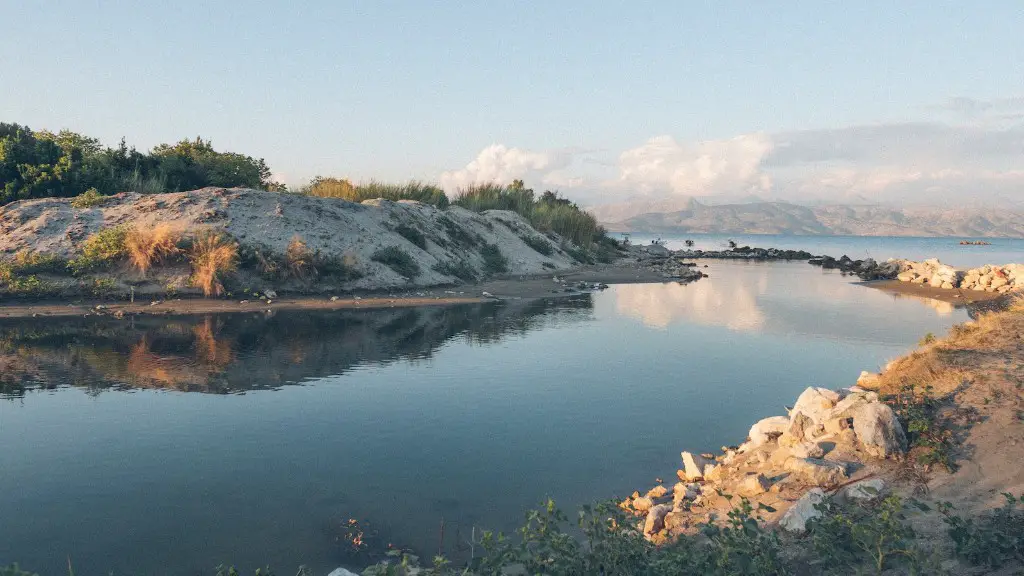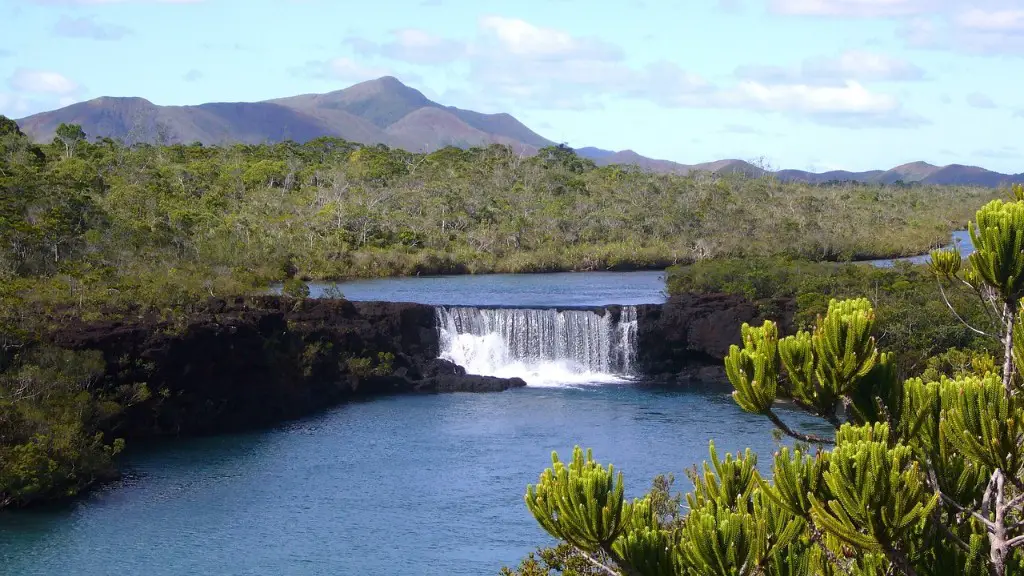Geographical Impact of the Mississippi River
The Mississippi River is one of the oldest rivers in the world, its winding path starting in Minnesota in the Northern United States and ending near the Gulf of Mexico. The length of the Mississippi River at an incredible 2,350 miles, passing through 10 states and over 40 of the largest cities in the United States.The Mississippi River impacts every state which borders it, as well as many others beyond.
The geography of the area around the Mississippi River has been significantly shaped by its presence. Additionally, the importance of the proximity of the river has been a critical factor in the development of civilization in the United States. From the coming of the Native Americans to the colonization by Europeans, the Mississippi River has been both the avenue for exploration and a source of sustenance. The abundance of wild game and other resources that the river fed into helped sustain the populations in the area, allowing them to flourish.
Aside from its importance as a source of sustenance, the Mississippi River has also played an important role in the transportation of goods and services. From the fledgling days of small boats transporting goods to the subsequent development of river-based steamboats, the Mississippi River has been used to transport goods quickly, allowing goods produced and resources gathered in the lower Mississippi basin to travel further than they would have otherwise. This led to the growth of many larger cities and allowed goods to move more quickly, helping to develop markets across the US and fuel the US economy.
The Mississippi River also serves as a major commercial waterway for the transport of goods around the country. The large size of the river and the presence of locks and dams, allows for the transport of goods on large, deep draft vessels to be able to travel further inland. Furthermore, the navigability of the river makes it ideal for the large and efficient transport of goods, with barges taking full advantage of the river’s ability to provide quick access from the coast to almost any city on the river.
The Mississippi River has played an integral role in the development of the United States and continues to be a vital part of the nation’s economy. The abundance of resources, along with its navigability, have made it an invaluable asset for transportation, commerce and agriculture, as well as many other industries, both present day and past.
Policies Regarding the Mississippi River
Due to the importance of the Mississippi River to the country, a number of policies and regulations from government agencies, organizations, and private entities have been put into place in the hopes of conserving the river. The first federally established management policy to protect the Mississippi River was passed in the late 1920s and was focused on flood control and better managing the water levels. Subsequently, organizations like the Mississippi River Commission have been working to regulate the river and protect it from construction, pollution, and other activities that have the potential to damage the river or its wildlife.
The development of the “National Discharge Standards Program” was an important milestone in this regard, as it established guidelines for the acceptable pollutants that could enter the river. This was a major breakthrough in terms of protecting the Mississippi River from industrial and manufacturing contaminants and is still in place today. The government has also sought to ease traffic in the river and to encourage navigability, which has helped ensure the continued flow of goods down the Mississippi River and protected its important role as a waterway.
The introduction of the Clean Water Act in 1972 was perhaps the most significant policy advance in recent years. This act provided for additional regulations on waste and other pollutants entering the river, as well as for the monitoring of pollution levels both upstream and downstream. Additionally, it has contributed to the restoration of several important areas along the Mississippi River, such as the wetlands of the upper Mississippi watershed. These efforts have helped to ensure the long-term sustainability of the river and the ecosystem it supports.
The Mississippi River is a vital resource for the United States, and the policies regarding it have been necessary in order to preserve the river and its associated ecosystem. Additionally, the regulations have allowed for the safe and efficient transportation of goods along the river, as well as the protection of the many species and resources which inhabit its waters.
Environmental Impact
The Mississippi River has been significantly impacted by human activities over the years, leading to both changes in the shape and size of the river as well as impacts on the environment. The introduction of industrial waste into the river has been particularly damaging, leading to serious pollution issues. Additionally, when excessive water is released from upstream dams, it can create erosion and flooding in the lower regions of the river. These activities have led to significant changes in the amount of waterflow and distribution of resources throughout the river.
The environmental impacts of the Mississippi River have been particularly prominent in the Gulf of Mexico, where runoff from rivers and streams collecting from the Mississippi River has led to a significant decrease in the health of the region’s marine life. This has been due to the presence of contaminants like nitrogen, as well as agriculture waste and its subsequent effects on the health of the water. Additionally, the presence of invasive species like the Asian carp and zebra mussels have had a significant impact on the local ecosystems, leading to the decline of native fish species.
The effects of the pollution and runoff from the Mississippi River have been felt around the world, and have had major consequences on the ecology of the planet. The fact that it is one of the largest rivers in the world, this groundwater runoff is able to travel super distances and has an impact on the entire global ecosystem. The presence of pollutants and non-native species also presents a risk to the larger habitats in which they spread, and can completely alter the ecology of an entire region.
The environmental impact of the Mississippi River is undeniable and its effects are evident in the ecosystems it impacts, both in the United States and around the world. The importance of accepting responsibility for the damage we have done and putting policies into place to protect these vital resources cannot be overstated.
Economic Impact
The Mississippi River is an incredibly important part of the US economy and has had a profound impact on its development over the years. The navigability of the river has allowed goods to travel from the Gulf of Mexico to cities upriver and helped fuel the US economy since the country’s founding. The presence of the river has led to increased trade between the Midwest and the East coast and allowed for the growth of some of the most important cities in the United States.
The Mississippi River also serves as a primary economic resource for the 10 states that border it and helps sustain a number of industries. The abundance of wild game and fish, along with other resources like timber, oil, and other minerals, have all been sources of income for those living near the river. Additionally, the river provides recreational opportunities, such as fishing and boating, which help to draw people to the area and contribute to the economy.
The agricultural industry is another major benefit of the Mississippi River and its presence has helped to make the cultivation of crops possible on both sides of the river. This has led to an increase in the amount of farms in the area, providing jobs and economic benefits to local communities. Additionally, the availability of water has allowed for the development of various industries, such as fisheries and food processing, further contributing to the development of the river’s economy.
The most famous example of the economic impact of the Mississippi River is the development of the riverboat casinos. This is an industry that has been present on the river for centuries, but in the modern day it is one of the largest contributors to the economic benefits of being on the Mississippi River. With its ease of access, the riverboat casino’s have become an important part of the tourism industry and have provided millions of dollars in revenue for the river communities.
The importance of the Mississippi River to the US economy cannot be understated. From agriculture to transportation and recreation, the presence of the river has allowed for the growth and development of communities across the Midwest and beyond.
Societal Impact
The Mississippi River has been a part of American culture for centuries, and its presence has had a significant impact on the development of civilization in the United States. From its importance to the Indigenous populations that first lived in the area to the explorations of the Europeans and the eventual colonization of what is the United States today, the Mississippi River has contended the keystone to the development of this part of the continent.
The river has also been of extreme importance to African-American culture and heritage. From serving as a place of refuge to fleeing slaves to its role in the development of Jazz music, the Mississippi River can be seen throughout African-American history. In particular, the river has come to serve as a symbol of hope in times of struggle and of resilience in times of growth.
The Mississippi River has also been a major part of popular culture, with songs, books, movies, and television programs all celebrating its importance. In addition to its presence in music and literature, the river has even been featured in some of the most iconic movies in history, serving an important role in the backdrop of these stories.
The Mississippi River has been an integral part of US culture since it was first discovered and continues to be to this day. Its importance to the development of the US, and its lasting impact on popular culture, make it an essential part of American history.
Modern Use of the Mississippi River
The Mississippi River is one of the most heavily used rivers in the world and has major economic, environmental, and cultural importance. With its navigability, the river continues to be an important avenue for the transport of goods and services throughout the nation. Additionally, its importance to recreation and tourism continues to be of increasing importance.
The river is also still a major source of sustenance in the form of agricultural activity, both in terms of the crops it irrigates and the water it provides for animals and livestock. Additionally, the river continues to provide an important source of recreation for the millions of people living nearby, with fishing and boating being popular activities along its length.
Another important aspect of modern use of the Mississippi River is its importance as a source of energy. Hydroelectric power plants located on the river have been a major source of power for decades and continue to be important for powering homes and businesses along the river. Additionally, the river has been increasingly tapped for the production of natural gas and other forms of energy, further demonstrating its importance to the developing energy industry.
The Mississippi River is of major importance in the present day and continues to be an integral part of the United States’ economy and culture. As the nation continues to develop, the river remains an important part of the country’s infrastructure and an indispensable resource for its citizens.





